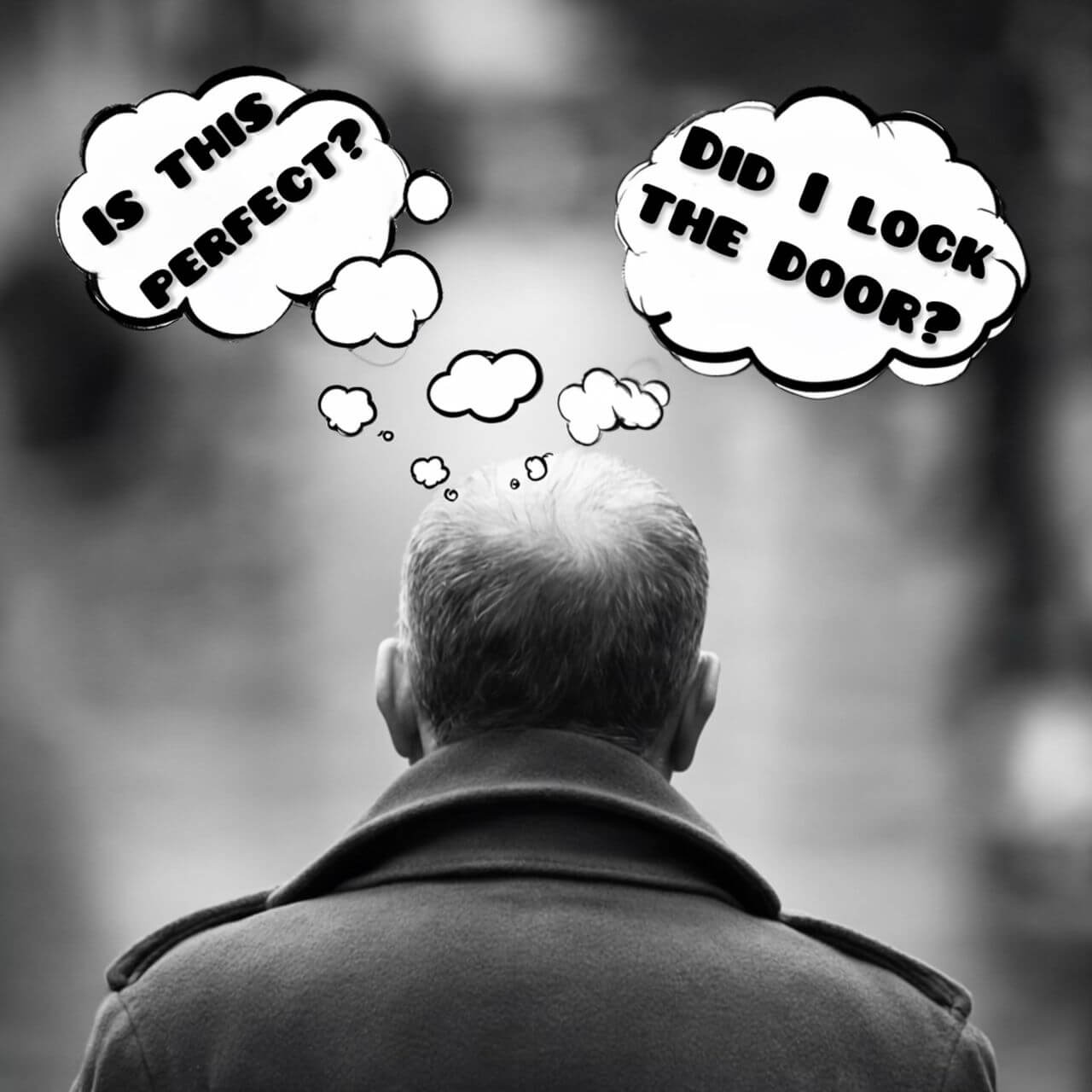
When ADHD Triggers Obsessive Thoughts
Imagine waking up in the morning, and the moment your eyes open, your mind is already racing. It’s as if a thousand thoughts burst forth at once, demanding your attention. You try to focus, to grasp onto just one thought, but they keep slipping away-each new idea arriving faster than the last. No matter how hard you try to calm the whirlwind inside your head, it feels like the noise never stops. For many with Attention Deficit Hyperactivity Disorder (ADHD), this relentless mental chatter is a daily reality, one that never seems to quiet down. But for some, this mental chaos doesn’t simply fade into background noise. It grows into something more consuming-obsessive, repetitive thoughts that feel as though they are constantly circling, each one more pressing than the last, forcing them into a loop they can’t escape
A Day in the Life of Someone with ADHD and Obsessive Thoughts
Let’s take a deeper look into the life of Alex, a 35-year-old woman who has struggled with ADHD since childhood. Alex had always had trouble focusing in school, her mind constantly flooded with a range of thoughts, often forgetting to complete assignments or follow through on tasks. However, over time, she noticed something new creeping into her experience. Alongside her ADHD symptoms, she began to experience obsessive and compulsive thoughts—thoughts that consumed her mind and felt impossible to ignore.
One morning, Alex wakes up and immediately feels a surge of anxiety: “Did I turn off the stove last night?” Even though she is confident she did, she feels compelled to check multiple times, unable to rid herself of this thought. Then, other obsessive thoughts come flooding in: “What if I left something on and caused an accident?” The more she tries to push these thoughts away, the more they return, forcing her to engage in repetitive behaviors, even when she knows they are unnecessary.
ADHD and Obsessive Thoughts: A Complex Relationship

ADHD is typically known for core symptoms such as inattention, impulsivity, and difficulty with sustaining focus. People with ADHD often describe their minds as constantly active, with thoughts jumping from one topic to another. This mental restlessness can make it hard to complete tasks, follow routines, or stay organized. However, when obsessive thoughts are also present, the situation becomes more complicated.
Obsessive thoughts are intrusive, persistent ideas or fears that are difficult to control or ignore. For individuals with both ADHD and obsessive tendencies, the internal experience can feel like a tug-of-war. On one hand, their ADHD brain is constantly shifting focus, making it hard to stay on task. On the other hand, obsessive thoughts trap their attention, forcing them to dwell on certain fears or ideas and engage in repetitive behaviors like checking, counting, or mental reviewing.
This combination creates a unique kind of mental conflict. For example, a person might struggle to start a project because they are distracted (an ADHD trait), but once they begin, they may find themselves obsessively reviewing every detail or repeatedly checking for mistakes (an obsessive trait). The result is not just inefficiency, but also heightened stress, anxiety, and frustration.
Additionally, impulsivity in ADHD can make it harder to resist acting on obsessive thoughts. Someone might know that checking the lock five times is unnecessary, but the impulsive nature of ADHD may push them to do it anyway, just to relieve the discomfort—even briefly.
Recognising how these symptoms interact is essential for creating treatment plans that help people manage both their attention and obsessive thinking. Left unrecognized, the overlap can lead to misdiagnosis or incomplete care..
Scientific Insight
Research published in PubMed suggests that 30-50% of individuals with ADHD experience co-occurring anxiety or obsessive traits. This highlights how the interplay of ADHD and anxiety can exacerbate obsessive thinking.
However, it’s important to note the distinction: Obsessive Thoughts in ADHD often arise due to hyperfocus or anxiety, whereas Obsessive-Compulsive Disorder (OCD) involves compulsions aimed at alleviating obsessive thoughts. Not all individuals with obsessive thoughts meet the criteria for OCD—a nuance worth exploring further.
For example, Navigating Rejection Sensitivity Dysphoria and ADHD explains how emotional dysregulation in ADHD can intensify such experiences.
Shared Symptoms of ADHD and Obsessive Thoughts
For example, individuals with ADHD may experience a racing mind full of random, distracting thoughts. In contrast, someone with OCD may feel overwhelmed by repetitive, distressing thoughts that are difficult to control. In both cases, the mind feels noisy and cluttered, but the underlying causes and motivations differ.
Additionally, impulsivity in ADHD may sometimes look like compulsive behavior. A person might repeatedly check something or engage in a routine, not out of anxiety (as in OCD), but because of difficulty with attention or self-regulation. This overlap can blur the lines between the two conditions, leading to confusion during diagnosis or treatment planning.
Recognising the subtle differences between ADHD-related behaviors and those rooted in OCD is essential for accurate diagnosis and personalised care.
- Inattention and Intrusive Thoughts: ADHD often involves a racing mind, and when obsessive thoughts enter the picture, they amplify the difficulty in filtering distractions.
- Impulsivity and Compulsive Behaviors: Impulsivity in ADHD may lead to repetitive actions or rituals, though they lack the anxiety-relieving compulsions seen in OCD.
- Increased Anxiety: Anxiety frequently underpins ADHD and OCD, creating a cycle of obsessive thoughts and compulsive behaviors. Learn more about managing anxiety at Key Similarities Between Autism and ADHD.
Obsessive Thoughts in Children with ADHD

In children with ADHD, obsessive thoughts may not look the same as they do in adults or in children with OCD. These thoughts often stem from the child’s difficulty with emotional regulation and shifting attention from one idea or task to another. For example, a child might get stuck on a particular thought—such as worrying about forgetting their homework—and return to it repeatedly, not necessarily because it causes them anxiety, but because they can’t easily move on to something else.
This is often due to a phenomenon called hyperfocus, where the child fixates intensely on one idea or activity. Unlike in OCD, where repetitive behaviors are performed to reduce anxiety triggered by intrusive thoughts, the repetitive behaviors in children with ADHD are more likely to be impulsive or driven by an inability to disengage from a thought.
Additionally, the child may lack the cognitive tools to recognize that their thoughts are repetitive or unnecessary. This can make it challenging for parents and educators to distinguish between ADHD-related obsessive patterns and true compulsive behaviors associated with OCD.
Understanding these differences is essential for appropriate support and treatment. While both conditions can involve repetitive thoughts or actions, their root causes and emotional drivers are distinct.
If you’re exploring ADHD in children, visit How to Diagnose ADHD in Children for a deeper understanding.
Therapeutic Strategies for ADHD and Obsessive Thoughts

Effectively managing both ADHD and obsessive thoughts requires a comprehensive, multi-faceted approach that targets the unique interplay between attention challenges and intrusive thinking. Since these conditions can reinforce one another, treatment should address both the cognitive and emotional aspects involved.
Here are some evidence-based strategies that can help:
- Cognitive Behavioral Therapy (CBT): This evidence-based treatment helps individuals identify intrusive thought patterns and develop adaptive coping strategies. Explore CBT Insights.
- Medications: SSRIs for obsessive thoughts and stimulants for ADHD provide significant relief when administered together. Discover details on medications in New Study Reveals ADHD’s Serious Impact.
- Mindfulness Techniques: Practices like meditation calm racing thoughts and support emotional balance. Learn techniques at ADHD Sleep Disorders and Relaxation.
Conclusion
Living with both ADHD and obsessive thoughts can feel overwhelming, but with the right tools and understanding, individuals can break free from the cycle of distress. Integrating strategies such as CBT, mindfulness, and medication ensures effective management of symptoms.
For additional resources, visit Sensory Integration in Autism and ADHD or Access to Work Support for ADHD.
By addressing ADHD and obsessive thoughts simultaneously, individuals can reclaim focus and find peace amidst the chaos. If you’re struggling with both ADHD and obsessive thoughts, consider seeking support from professionals who understand the overlap. Reach out to our team at Eton Psychiatrists to explore a personalised care plan.



